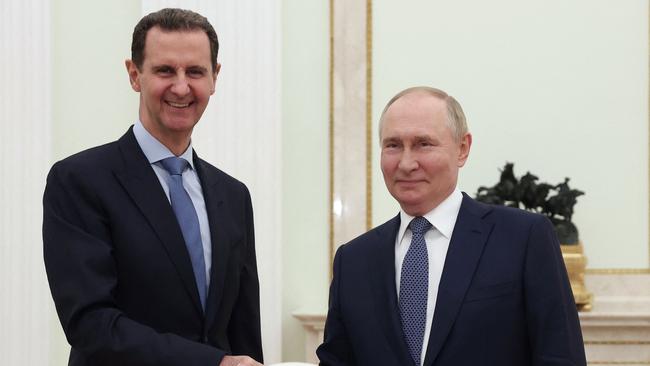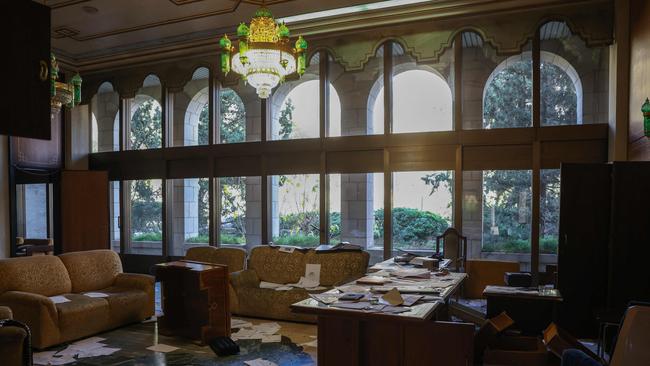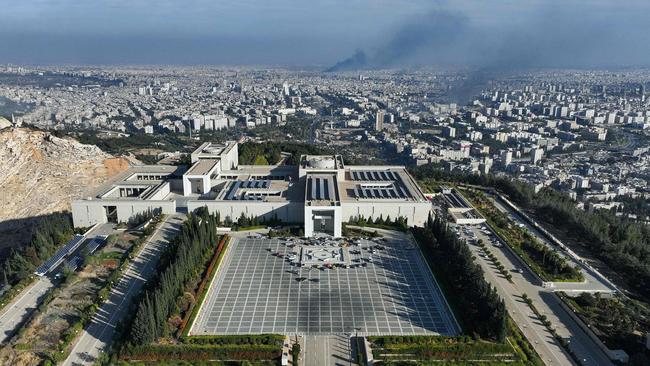Bashar al-Assad’s downfall will reverberate far beyond Syria’s borders

“Turns out nuclear countries can lose wars,” said Aleksandar Djokic, a political analyst, referring to Russia. “Lose strategic interests, be humiliated – and still no nuclear holocaust is unleashed.”
The collapse of Mr Putin’s puppet regime also breaks up the Shia crescent, the web of Islamist affiliates that allowed Iran to extend its power into the eastern Mediterranean. Iran’s land corridor via Iraq has been closed, with Deir Ezzor in Syria now seized by the Kurds. Iran’s ammunition supply route through Syria into Lebanon will soon seem as archaic as a Roman road.
Russia, meanwhile, is not only evacuating its Mediterranean naval base at Tartus but also the air traffic centres that control Syrian skies. Until now there has been a covert agreement between the Russians and Israelis that allows the latter to strike against Iranian Revolutionary Guards’ arsenals or firing sites inside Syria. That agreement is now redundant.

The ripples from Syria were felt as far away as Paris as world leaders gathered on Saturday for the reopening of Notre Dame cathedral. President Zelensky of Ukraine was seen talking to President Zourabichvili, his Georgian counterpart drawn closer by the apparent weakening of Moscow.
Russia hasn’t only saved the skin of the Assad regime over the years but also that of Belarus in 2020 and Kazakhstan in 2022. But Georgia perceives Moscow weakened by almost three years of war against Ukraine and wonders how far and how quickly it can break out of President Putin’s orbit. If the Kremlin leader has to throw Assad under a bus in order to focus on Ukraine, then how strong is he really? How dependable an ally?
This will not have been lost on Donald Trump, the US president-elect, who was also in Paris. His declared ambition is to end the war in Ukraine with some form of a land for peace deal. Yet it will be difficult for a US president to be able to frame an agreement that rewards Putin for his aggression at a time when he appears unable to hold his alliance of autocrats together.

It will be Trump’s first kinetic foreign crisis: US intelligence is already on high alert for the possible use of hidden chemical weapons by regime loyalists.
Even China, which came out in favour of the Assad regime a few days ago, seems dumbfounded by how quickly power can change hands.
What will happen next? Can Hayat Tahrir al-Sham (HTS), the victorious Islamist group, credibly maintain its rebranded narrative of moderate, decentralised jihadism? Can it co-operate with Turkish-backed groups to restore services, public trust and be a plausible partner for foreign investors? Will it follow the path of forming an inclusive transitional government that steers towards an election?
Turkey will be pivotal and it is up to President Erdogan to set out how he sees the future of his neighbour, how he imagines he can control HTS, how he plans to continue his struggle against the Kurds.
Turkey, a Nato member, will be sitting down with a smarting Russia and a suddenly vulnerable Iran. What if Tehran decides that its only logical course is to push more quickly for a nuclear bomb? What if Israel decides it needs a wide security zone inside Syria?
There’s nothing quite as unsettling for the world as the ousting of a dictator in a geopolitical hotspot.
The Times





The fall of President Assad will reverberate far beyond Damascus as the great powers that backed the various sides in the Syrian conflict emerge from the wreckage of his regime as winners and losers.